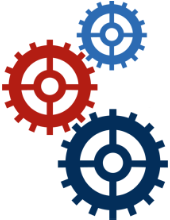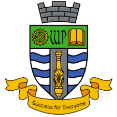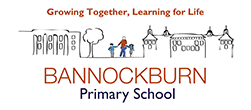Science
Science
A successful Poly Scientist would be able to analyse complex problems and come up with possible solutions. To achieve that, they will be able to safely conduct a range of experiments to investigate many scientific concepts in Biology, Chemistry and Physics. They would be able to interpret a range of evidence, including observations and data, to come to valid conclusions. They would have a broad understanding of some key areas of science relevant to today. They would also be able to evaluate the effectiveness of a range of techniques and discuss the social, economic and technological consequences of their use. Most importantly, a successful Poly Scientist would develop a natural curiosity of the world around them and strive to always improve themselves.
Key Stage 3
At KS3, we follow the national curriculum to guide our curriculum and assessment plan. Lessons are planned and delivered to enthuse the love of science and investigation skills in learners.
support materials and useful links
Key Stage 4
AQA GCSE Combined Science (Trilogy)/AQA Separate Sciences
At KS4 we offer the Separate Science as well as Combined Trilogy specification. Both courses are offered in Higher and Foundation tiers. This offers a wide range of possibilities and skills to suit the needs of all learners and to help them their full potential.
Assessment
- Combined Sciences: 6x 75 minute paper, 2 for each of the sciences.
- Separate Sciences: 6x 105 minute paper, 2 for each of the sciences.
support materials and useful links
Key Stage 5
Science has one of the largest sixth form in school. We offer a variety of courses in post-16.
- A-level Biology – OCR
- A-level Chemistry – OCR
- A-level Physics – OCR
- A-level Psychology – AQA
- BTec Level 3 Applied Science – EdExcel Pearson
- BTec Level 3 Forensics and Criminal Investigation – EdExcel Pearson
department information
Any specialist equipment required?
Students should bring scientific calculators to all lessons. Students should also have revision guides that can be purchased from the school via the online system MCAS.
Enrichment opportunities
STEM club activities
Enrichment trips
Clubs or Interventions
Future careers/uni courses.
Sciences offer such a wide horizon of opportunities to all learners in every field of life. Even if the career pathway does not have sciences as pre-requisites, the skills gained in the sciences are transferrable at many levels.
Some of the common careers include being a Chemist; engineer; marine biologist; analytical chemist; animal technician; biomedical engineer; biomedical scientist; clinical psychologist; environmental health practitioner; food technologist; forensic scientist; healthcare scientist, immunology; hospital pharmacist; meteorologist; microbiologist; nanotechnologist; pharmacologist; geneticist; research scientist; science writer; laboratory technician; toxicologist; water quality scientist.
Social, Moral, Social, Cultural (SMSC) and British Values
Science is using evidence to make sense of the world. It has the ability to make us feel both enormously insignificant (compared to the scale of the visible universe) and enormously significant (we are genetically unique). It helps us understand our relationship with the world around us (how the physical world behaves, the interdependence of all living things).
Medical ethics is often discussed as projects or in lessons. Whether it is the ethics behind certain medical treatments, the environmental impact of industry, or how government funding is allocated to scientific projects; moral decisions are an important aspect of Science.
Sharing ideas, data, and results (for further testing and development by others) is a key principle of the scientific method. We encourage pupils to work together on scientific investigations and to share results (to improve reliability). Science has a major impact on the quality of our lives. In science lessons, pupils consider the social impact (both positive and negative) of science and technology.
In science lessons, we explore and celebrate research and developments that take place in many different cultures, both past and present. We explore how scientific discoveries have shaped the beliefs, cultures and politics of the modern world.





